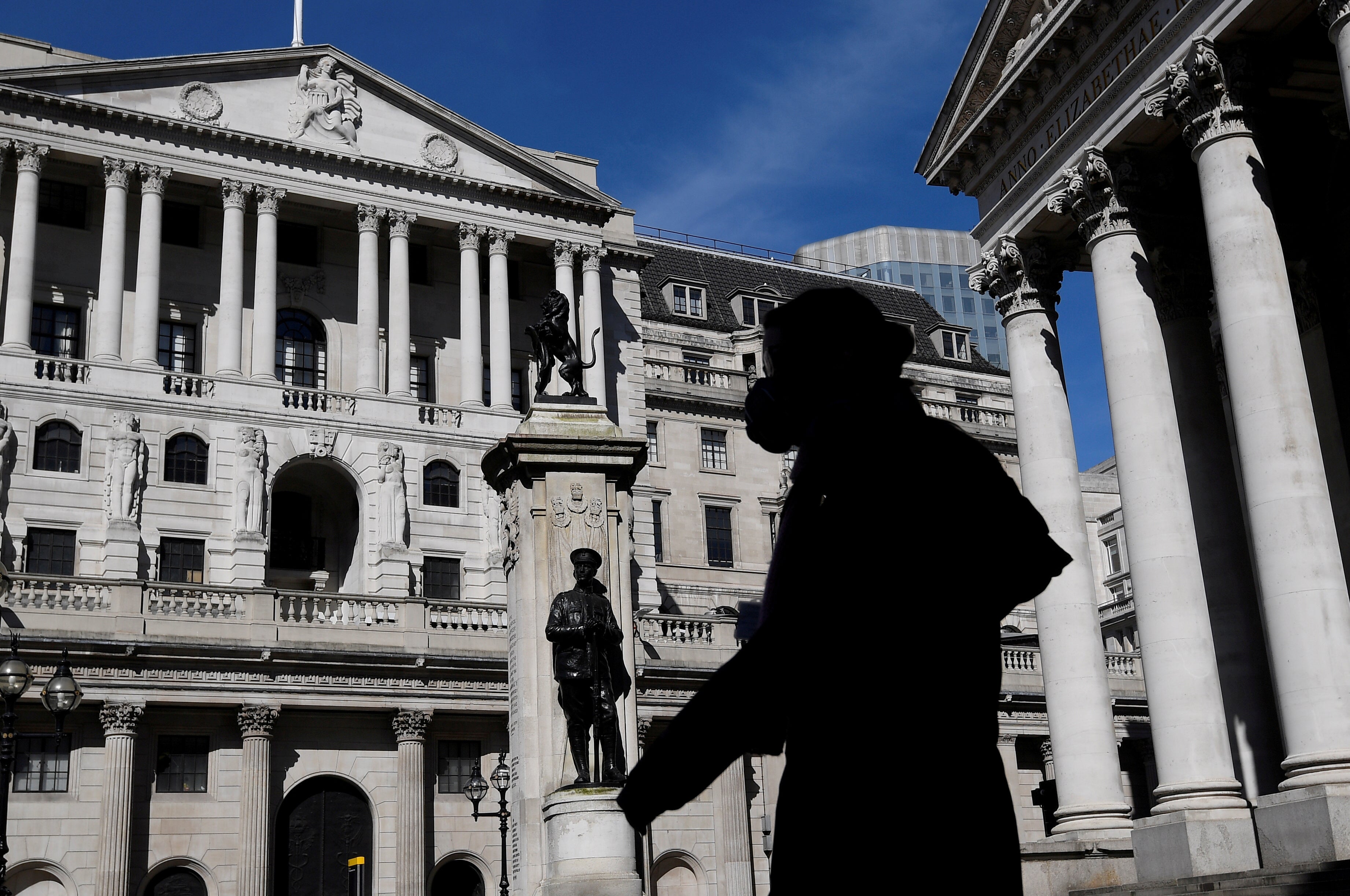Bank of England ready to pump billions more into the economy as job losses rise
UK economy faces ‘tremendous challenge ahead’ meaning more monetary stimulus is likely, says bank’s Gertjan Vlieghe

Your support helps us to tell the story
From reproductive rights to climate change to Big Tech, The Independent is on the ground when the story is developing. Whether it's investigating the financials of Elon Musk's pro-Trump PAC or producing our latest documentary, 'The A Word', which shines a light on the American women fighting for reproductive rights, we know how important it is to parse out the facts from the messaging.
At such a critical moment in US history, we need reporters on the ground. Your donation allows us to keep sending journalists to speak to both sides of the story.
The Independent is trusted by Americans across the entire political spectrum. And unlike many other quality news outlets, we choose not to lock Americans out of our reporting and analysis with paywalls. We believe quality journalism should be available to everyone, paid for by those who can afford it.
Your support makes all the difference.A Bank of England policymaker has backed the case for negative interest rates and pumping more money into the economy as coronavirus cases rise further and unemployment is set to soar.
Gertjan Vlieghe, one of nine members of the bank's monetary policy committee, signalled in a speech on Tuesday that more intervention is likely to be needed.
He warned: "Given that virus prevalence has been increasing again recently, it is likely to weigh more heavily on economic activity.
"Indeed, it appears that the downside risks to the economic outlook are starting to materialise.”
The UK faces a "tremendous challenge ahead" with joblessness now forecast to be far higher than previously expected, Mr Vlieghe said.
“In my view, the outlook for monetary policy is skewed towards adding further stimulus.”
When rates to below zero, lenders must pay to deposit cash with the central bank, providing added incentive to lend money.
However, critics of negative rates have questioned how much of a positive impact they will have on the economy.
Mr Vlieghe joined with fellow committee members Silvana Tenreyro and Jonathan Haskel who have both pointed to evidence from European Central Bank data indicating that below-zero rates could boost lending and stimulate the economy.
"My own view is that the risk that negative rates end up being counter-productive to the aims of monetary policy is low," Mr Vlieghe said.
"Since it has not been tried in the UK, there is uncertainty about this judgment, and the monetary policy committee is not at a point yet when it can reach a conclusion on this issue.
"But, given how low short-term and long-term interest rates already are, headroom for monetary policy is limited, and we must consider ways to extend that headroom."
The Bank of England is expected to pump more money into the economy when it meets in November with a poll of analysts by Reuters forecasting that another £100bn will be created.
Under the bank's quantitative easing programme it has created £745bn of digital money, most of which has been used to purchase government bonds.
But Mr Vlieghe said QE is becoming less effective at delivering economic growth.
He said: "A key channel through which QE works is by affecting expected future real interest rates, which are already very low.
"These arguments suggest QE is probably less potent now than in March, at the height of market disruption and uncertainty."
Bank of England governor Andrew Bailey has appeared less enthusiastic about the case for cutting interest rates below zero, though he has not ruled it out.
Mr Bailey warned last week that “hard yards” are ahead for the UK economy.

Join our commenting forum
Join thought-provoking conversations, follow other Independent readers and see their replies
Comments